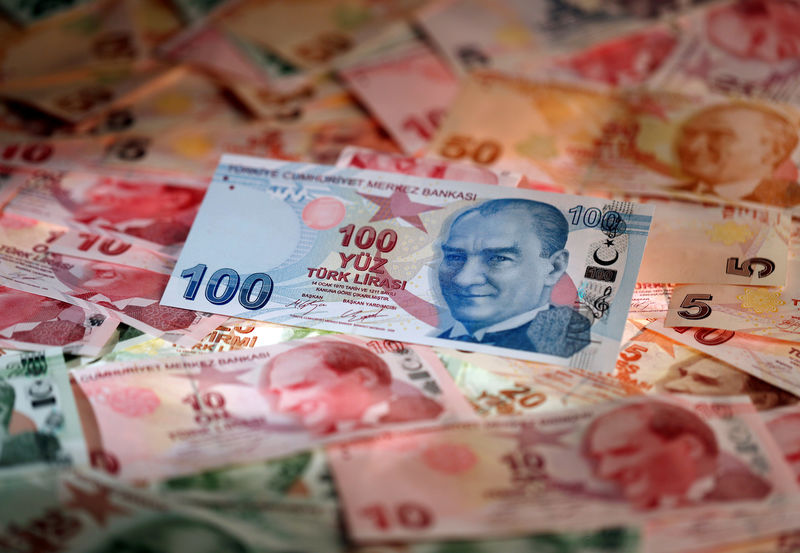 © Reuters.
© Reuters.
Investing.com - The Turkish lira, which was already under heavy pressure, continued its slide unabated after the 650 basis point interest rate hike by the central bank in Ankara. The currency hit new record lows against the euro and the dollar, leaving investors and economists alike concerned.
The USD/TRY recently gained 2.27% to reach TRY 24.10, while the EUR/TRY rose 2.32% to TRY 24.49. At the same time, the gold price in lira recorded a recovery and approached its record highs again.
The Turkish central bank's decision to raise its key rate by a whopping 650 basis points to 15% was seen as a positive step but fell short of economists' expectations. They had expected a rate hike to 21% to support the lira and regain market confidence. In its accompanying monetary policy statement, the central bank hinted at further rate hikes.
Liam Peach, senior emerging markets economist, commented: "Further hikes are needed at the coming meetings to tackle Turkey’s inflation problem. The communications suggest that this is coming, even though tightening will be more gradual than had been expected as few weeks ago. We still think that rates will rise to 25-30% later this year."
The increase in the policy rate marks the beginning of a new monetary policy era under the leadership of Hafize Gaye Erkan. As the new central bank chief, she was appointed by President Erdoğan to pursue a more rational monetary policy and bring high inflation under control. Previously, Erdoğan had considered high interest rates as an enemy and advocated looser monetary policy.
The central bank's decision has drawn controversy from various quarters. Some economists welcome the move as a necessary step to regain investor confidence and curb inflation. Others see the decision as insufficient to solve the country's economic problems and continue to call for a stronger increase in interest rates.
High inflation and the weak lira continue to pose major challenges for the Turkish economy. Rising prices are weighing on consumers and businesses and reducing purchasing power. In addition, the weak currency makes it difficult to import goods and increases the country's debt burden.

